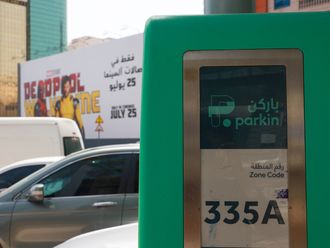Dubai: Yields on Dubai's non-rated 6.396 per cent sukuk maturing in November 2014 surged 84 basis points last month to 6 per cent in Dubai, poised for the second-biggest monthly jump since state-owned holding company Dubai World sought to delay payments on $25 billion of debt in November 2009.
The cost to insure Dubai's bonds against default climbed 85 basis points in the period to 470, according to data provider CMA.
Dubai had earlier successfully negotiated a deal to restructure nearly $25 billion dets owed by Dubai World.
A latest survey by the emirate's Department of Economic Development (DED), showed that business confidence in the emirate is growing as trade and tourism sectors are showing growth in activities.
Europe's crisis has prompted banks to tighten lending and lifted borrowing costs in emerging markets, according to Hong Kong-based SJS Markets Ltd.
Restructuring
State-owned Dubai World signed an agreement with creditors in March to alter terms on its debt, helping push the yield on the emirate's sukuk more than one percentage point lower that month.
Mohammad Omar Abdullah, undersecretary of the Department of Economic Development in Abu Dhabi, told reporters yesterday that both Dubai and Abu Dhabi would honour their debt due next year.
Mohammad Al Shaibani, Director-General of the Ruler's Court, said on September 22 that the government would back its "strategic investments".
Average yields on sukuk in the six-nation Gulf Cooperation Council, jumped 55 basis points in November to 4.42 per cent yesterday, the HSBC/Nasdaq Dubai GCC US Dollar Sukuk Index shows.
The bonds returned 6.7 per cent in 2011, while debt in developing markets rose 6.5 per cent, JPMorgan Chase & Co.'s EMBI Global Composite Index show.
Abu Dhabi and Qatar's default swaps cost 128 basis points yesterday, the lowest in the region.












